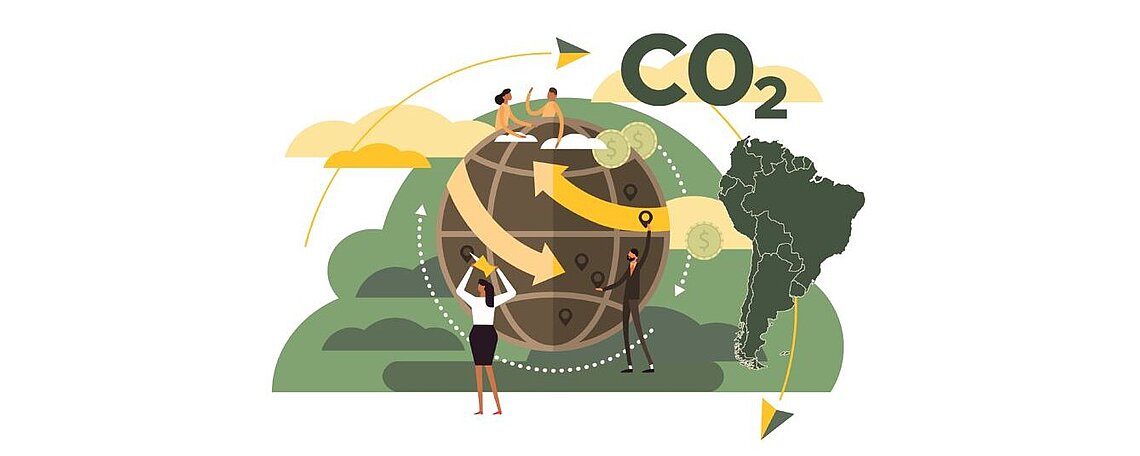August 2021 - Article 6 of the Paris Agreement gives Parties the opportunity to adopt cooperative approaches on a voluntary basis. The operationalization of the mechanisms brings challenges, the overcoming of which can be supported by the formation of so-called carbon clubs: countries can converge their positions on the implementation of the mechanisms, which in the best case will lead to a stronger commitment of the member states and ambitious reduction targets.
Against this background, the study "Pathways of (Inter) Regional Collaboration towards a joint implementation of Article 6 of the Paris Agreement" by the Gesellschaft für Internationale Zusammenarbeit Chile surveyed existing carbon clubs and bilateral agreements at the international level.
The study shows that the groups of countries and countries analyzed are generally positive about using the market mechanisms provided for in Article 6. There is a general consensus on structural and basic principles, but there are minor nuances in the way the principles could be put into practice - for example, with regard to the transition of the CDM. These differences could be addressed in a more proactive and consensual manner in the context of a carbon club.
Carbon clubs, the study suggests, could could act as a regional platform that enables transactions of Internationally Transferred Mitigation Outcomes (ITMOs) within a region, as well as the sale of mitigation outcomes to other existing clubs, international sectoral agreements or to other countries, including developed countries that require ITMOs to meet their goals established in their NDCs or to achieve their carbon neutrality targets by 2050.
The Executive Summary as well as the full text version of the study are available for download here.
Note: The study is available for download in Spanish, the Executive Summary can be downloaded in English

